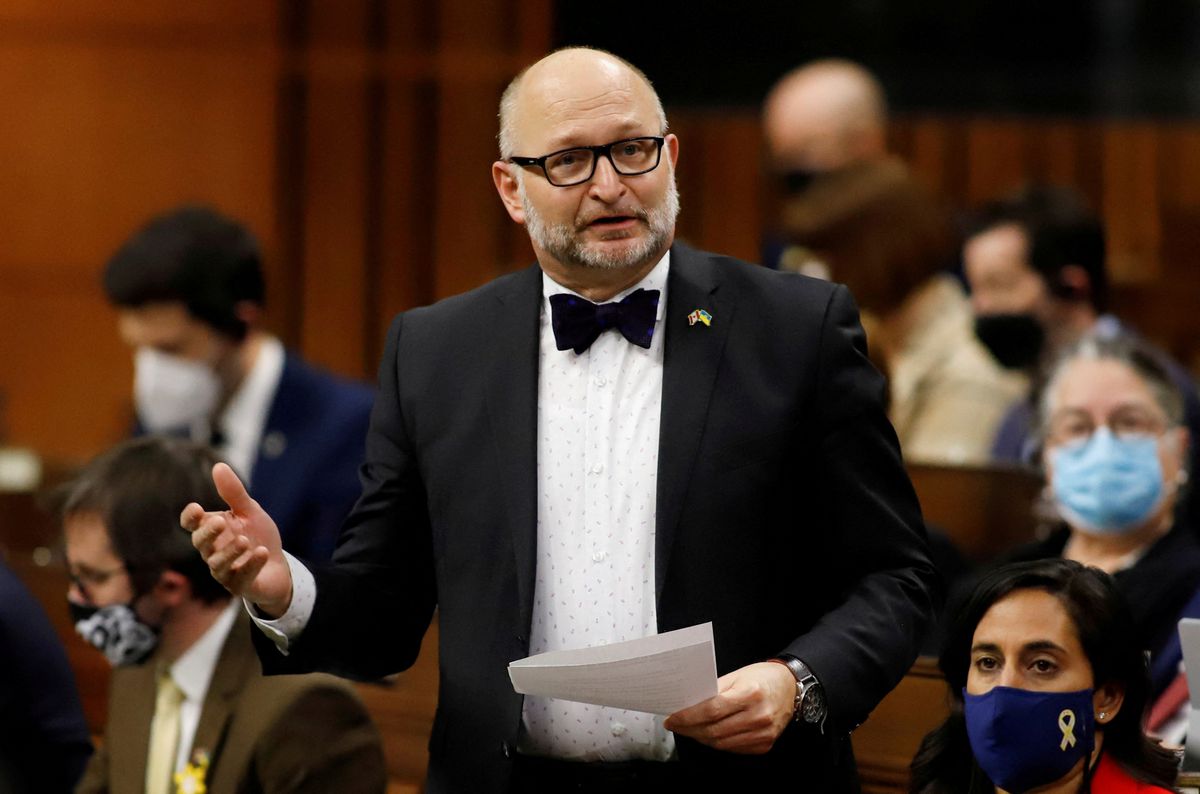
Minister of Justice and Attorney General of Canada David Lametti speaks during Question Period in the House of Commons on Parliament Hill in Ottawa, April 7, 2022. (REUTERS/Patrick Doyle)
By
The federal government has introduced proposed amendments to the Criminal Code that would establish an independent commission to review cases of individuals who may have been wrongfully convicted and decide if their cases should be reviewed.
The commission created by Bill C-40, also called “David and Joyce Milgaard’s Law,” would replace Canada’s current ministerial review process, which is handled by the Criminal Conviction Review Group within the federal justice department.
David Milgaard, after whom the proposed legislation’s short title is named along with his mother, was released from prison in 1992 after being wrongfully convicted of rape and murder and imprisoned for 23 years.
Justice Minister and Attorney General David Lametti introduced the proposed legislation in the House of Commons on Feb. 16, calling it a “critical step forward” in preventing wrongful convictions.
“We need a system that moves more quickly both for people applying as well as for victims, and the process needs to be independent,” Lametti said during a press conference in Ottawa on Feb. 16.
“This is no criticism of the excellent public servants who review applications and provide me with advice, but to build trust in the review process we need it to be independent of government.”
Lametti added that the existing system for reviews of potentially wrongful convictions hasn’t changed in over 20 years.
If the legislation passes and the independent commission is created, Lametti said the commissioners appointed to run it would “be required to reflect Canada’s diversity and to take into account the over-representation of certain groups in the criminal justice system, such as indigenous peoples and black persons.”
Review Process
Applicants who would seek to have the independent commission review their cases would first need to exhaust all their other rights of appeal before they can apply for the commission review, according to a release from the justice department.
The department also says that the commission “would not decide whether an applicant is guilty or innocent.”
“Rather, if the commission decides if a miscarriage of justice may have occurred and is in the interest of justice, it will grant a remedy, such as ordering a new trial or new appeal. Only the courts have the power to overturn a conviction,” said the release issued on Feb. 16.
The department also acknowledged that miscarriages of justice, such as happened in Milgaard’s case, are rare.
“All people in Canada must have confidence that the justice system is there to protect them and that it can be trusted,” it said.